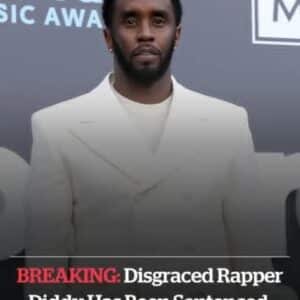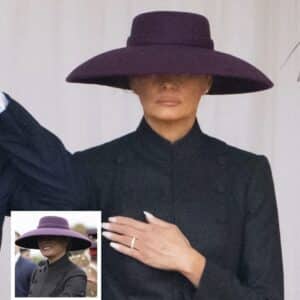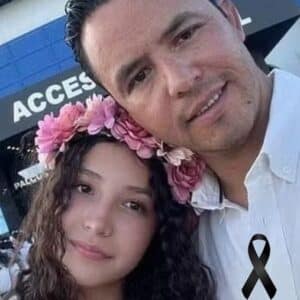Hillary Clinton Steps Back From Front-Line Politics, Opens a New Chapter
A Defining Moment in New York City
Under the soft lights of a packed auditorium in New York City, one of the most recognizable figures in modern American history stood at a turning point. Those present expected something significant — perhaps a reflection on a lifetime of public service, perhaps a hint at future ambitions — but few were prepared for what came next.
With a composed voice and decades of public life behind her, Hillary Rodham Clinton began with five words: “This isn’t easy… but it’s time.” The room fell silent.
Half a Century of Public Service
For nearly 50 years, Clinton has moved through some of the highest offices in American life: First Lady of Arkansas, First Lady of the United States, U.S. Senator from New York, Secretary of State, and the first woman to win a major party’s presidential nomination.
Her résumé mirrors the arc of modern American politics itself — health care reform in the 1990s, post-9/11 recovery, global diplomacy, and a presidential race that reshaped the national conversation about gender and leadership. Along the way she became both symbol and lightning rod, praised for tenacity and criticized for ambition, but never ignored.
The Announcement
On October 1, 2025, at Columbia University’s Claire McCarthy Auditorium, Clinton made it official: she would step back from the front lines of politics. The setting was telling — academic, serious, and personal. Branded as a “Personal Address to the Nation,” the event reflected a deliberate shift away from campaign spectacle toward reflection and reorientation.
“After months of reflection and long conversations with those I trust most — my family, my colleagues, my friends — I have decided it’s time for me to step back from the political arena,” she said. “It’s not a goodbye. It’s a redirection.”
Clinton framed her decision as an evolution, not a retreat: making space for new leaders, mentoring the next generation, and focusing on causes she has championed for decades.
A Record of Firsts — and Lessons Learned
Clinton’s speech wove together the milestones of her public life. She spoke of grassroots activism at Wellesley College and the Children’s Defense Fund; of the 1995 UN World Conference on Women, where she declared that “women’s rights are human rights”; of her time in the Senate after 9/11, and of navigating foreign crises as Secretary of State.
She did not shy away from acknowledging the 2016 presidential race — the loss, the lessons, and the resilience that followed. But she framed even her setbacks as part of a larger mission: to make public life more accessible to those who come after.
Turning Toward Advocacy
Rather than fade from view, Clinton outlined three areas she plans to pursue:
-
Global Girls’ Education — expanding access to schooling for girls in regions affected by poverty, conflict, or cultural barriers.
-
Civic Engagement in America — launching a nonpartisan initiative to improve civic literacy, especially among young voters.
-
Women’s Economic Empowerment — supporting programs that help women build businesses, access capital, and enter high-growth fields.
Her new role, she said, is about “elevating others, especially those who never had a seat at the table.”
Reaction Across the Spectrum
Tributes poured in from across the political landscape. President Joe Biden called her “one of the most influential Americans of our time.” Michelle Obama praised her “example for millions of young women.” Even some long-time rivals acknowledged the significance of her career.
Social media lit up with hashtags such as #ThankYouHillary and #Trailblazer, with many sharing personal stories of how her candidacy or policy work had affected them.
Predictably, critics dismissed the announcement as symbolic or strategic. But even skeptical commentators conceded that Clinton’s departure from electoral politics closes a major chapter in the Democratic Party’s history.
Implications for the Democratic Party
Clinton’s withdrawal from active politics creates space for a younger, more diverse set of leaders. Figures such as Alexandria Ocasio-Cortez, Raphael Warnock, and Pete Buttigieg represent a generational shift now likely to accelerate. Clinton herself called on “a new generation of leadership — diverse, bold, and unafraid to meet the challenges ahead.”
Institutions Move to Cement Her Legacy
Within days of her announcement, several institutions unveiled initiatives honoring her career:
-
The Clinton Fellowship for Public Leadership at Georgetown University, training young women in governance and public policy.
-
The Rodham Center for Civic Engagement with the National Civic League, aimed at boosting voter education and turnout in underrepresented communities.
-
Global Girls Forward, launched by UNICEF, pledging to fund education for 50,000 girls worldwide by 2030.
These projects signal that Clinton’s next chapter is less about personal officeholding and more about building infrastructure for others.
The Power of Graceful Exit
In an era where many political figures cling to the stage, Clinton’s decision to step aside voluntarily struck a chord. It illustrated a different kind of leadership: one that recognizes when influence can be exercised more effectively through mentoring and institution-building than through electoral campaigns.
“Democracy is not a spectator sport,” she told the audience in closing. “It requires participation, vigilance, and above all, hope. I’ve had my turn at the front lines. Now it’s your turn.”
Looking Ahead
Historians will debate Clinton’s record for decades, but her announcement signals more than retirement. It reflects a shift in how American public life evolves — from celebrity politics back toward institution-building, from personal ambition toward collective impact.
Whether admired or opposed, Hillary Rodham Clinton has been a force who changed the boundaries of American politics. Her next act, focused on mentorship and advocacy, suggests she intends to shape the future just as she shaped the past — only this time, from behind the scenes.





